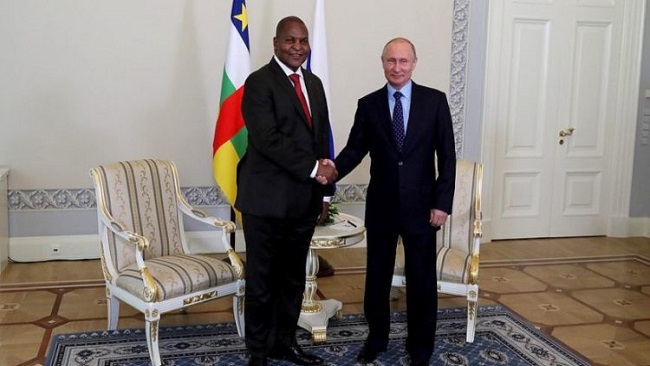Central African Republic’s Touadéra calls for national reconciliation as re-election upheld
Central African Republic’s highest court on Monday confirmed the re-election of President Faustin-Archange Touadéra, rejecting rivals’ objections as the government fends off a rebel offensive. In a speech broadcast on national television on Monday evening, Touadéra called for national reconciliation.
“I extend the hand of patriotism to the democratic opposition in order to bring our country out of this vicious cycle of violence and destruction. After I am sworn in, we will pursue national reconciliation in order to defuse the political climate pre- and post-election,” Touadéra declared.
The weeks before and after the December 27 election have been marred by a rebel assault on major cities. The rebels attacked the capital Bangui last week before being repelled by the army and UN peacekeepers.
Two peacekeepers – one from Gabon and one from Morocco – were killed on Monday in a rebel ambush outside the southern city of Bangassou, which militia fighters had partially occupied until being forced out last Friday, the UN mission said.
In all, seven peacekeepers have been killed since the rebels launched their offensive last month.
The fighting has forced nearly 60,000 people to flee the country, compounding an already dire refugee crisis.
Ten of Touadéra’s challengers said the election should be re-run, citing low turnout due to the violence as well as alleged voting irregularities.
The constitutional court rejected those arguments on Monday, declaring Touadéra the winner with 53.16 percent of the vote. It did, however, reject ballots from two towns because of irregularities, reducing Touadéra’s percentage from the 53.9 percent declared by the electoral commission earlier this month.
“I am very happy and I thank the Central African people who renewed their confidence in me,” Touadéra told supporters afterward. He said he was open to dialogue with his rivals but also promised to be firm with the authors of “blind violence”.
“The justice system will take care of them,” he said.
The government and the United Nations say ex-president François Bozizé, who was forced out in a 2013 rebellion, is backing the rebels. He has not directly responded to that accusation.
More than 1 million of the 4.7 million people in the gold- and diamond-rich nation have fled their homes since Bozizé’s ouster, and vast swathes of territory remain beyond the central government’s control.
(FRANCE 24 with REUTERS and AFP)





